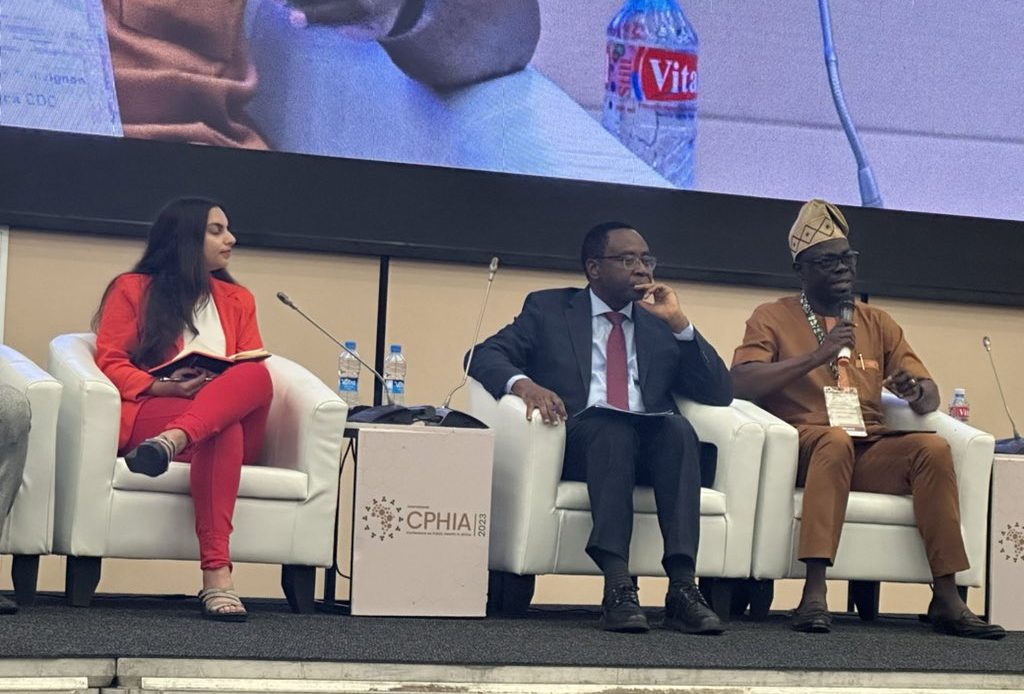Universal Health Coverage (UHC) has it foundation in the 1948 World Health Organisation (WHO) Constitution, which declares health as a fundamental human right and commits to ensuring the highest attainable level of health for all. Despite the ongoing public health efforts, the mission of upholding this basic human right falls short if people cannot afford or have access to care when needed.
The various healthcare landscapes, in addition to the myriad of economic and social challenges, underlines the critical need for strengthened and more equitable health systems. In many African countries, the impact of these challenges is often exacerbated by limited access to quality healthcare. Similarly, Nigeria like most African countries has experienced its fair share of challenges relating to access to primary healthcare. The implementation of the Basic Health Care Provision Fund (BHCPF) which was established under the National Health Act 2014 (NHA2014) is yet to be fully operationalised.
Strengthening health systems: a foundation for UHC
Accomplishing the ambitious goal of attaining UHC requires a concerted focus on health systems strengthening, partnerships and political leadership to foster equity.
In Africa, the quest to attain UHC is even more critical. The significance of UHC to the continent was highlighted during the 3rdInternational Conference on Public Health in Africa (CPHIA) in Lusaka, Zambia, during the plenary session themed: “Delivering Universal Health Coverage in Africa – Strengthened and Equitable Health Systems.”

For many countries in Africa, political will is at the crux of discussions to expand healthcare ranging from improving healthcare infrastructure to supply chains. During the panel discussion, Dr Paul Ngwakum, Regional Health Adviser, United Nations Children Funds (UNICEF) Eastern and Southern Africa highlighted this point, stating that “The expansion of healthcare has been a political process, often viewed as social welfare and not always a decisive factor in politicians’ election bid. Therefore, strengthening health system requires political leaders on the continent to unite in favour of health investments because advancing healthcare infrastructure hinges on the crucial factor of political will.”
A robust health system must not only address immediate health concerns but must also provide a foundation for preventive and long-term healthcare. Investments should be made to the training of healthcare professionals and deploying digital solutions. These would be pivotal steps in building resilient health systems that can withstand the complexities of the African healthcare landscape – it begins with including health in all policies.

Equity as a pillar for advancing UHC on the African continent.
It is important to identify and address inequalities and their root causes, before creating health policies. Equity is a core principle of UHC and emphasises the importance of fair and impartial access to healthcare for all, regardless of socio-economic status or geographic location. Therefore, a vested commitment to address existing disparities is crucial. As an example, the shortage of health workers due to their international migration should be tackled, in addition to creating an enabling environment to strengthen public-private sector integration.
In an interview with Dr Wasunna Owino, Country Director PharmAccess Foundation, Kenya, at the CPHIA, he stated that equity means, tailoring strategies to the unique socio-cultural and economic landscapes of individual nations to ensure that UHC is not a one-size-fits-all solution but a dynamic, responsive framework. “Health insurance packages should be tailored towards lifecycle in a way that is responsive to an individual’s needs based on their gender and age so that we don’t just have what is standard because sometimes standard may not be so efficient.”

Funding is critical to achieve UHC to ensure financial risk protection. It has become imperative to finding additional funding sources for healthcare, such as taxes on sugar sweetened beverages. This should help reduce out-of-pocket expenditure on healthcare in countries like Nigeria where it currently accounts for 75% of healthcare expenditure. Dr Shakira Choonara, Technical Specialist, WHO & UNFPA Portal on SRHR & UHC, noted that; “The ballooning of cost must be cut through effective regulations. A decentralised community-based health insurance can unlock the interest in UHC for the informal sector.”
African countries must champion reforms that breathe life into health equity—making healthcare accessible, affordable, and available for everyone.

Stronger Collaboration, Better Health
Collaboration between the government, non-governmental organisations (NGOs), and the private sector is crucial in delivering UHC in African countries. The synergy of these stakeholders can drive innovation, optimise resource allocation, and amplify the impact of healthcare interventions. Local community engagement is also important, as they have valuable insights into the health challenges specific to their contexts and desired health outcomes.
Therefore, in light of “breaking barriers” and attaining UHC in Africa requires a holistic approach that combines efforts to strengthen health systems and promote equity. The journey towards UHC is a shared responsibility that demands collaboration, innovation, and an unwavering commitment to leaving no one behind.


